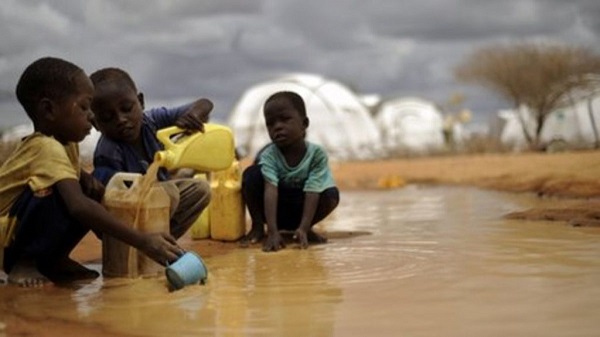
The Nigeria Centre for Disease Control and Prevention (NCDC) has implemented numerous measures to enhance the country’s ability to prevent, control and manage cholera outbreaks nationwide.
During the National Cholera Plan Review Meeting held in Abuja today (June 13, 2023), the director-general of NCDC, Dr. Ifedayo Adetifa made this announcement.
Cholera as an acute diarrhoeal illness caused by an infection of the intestines with vibrio cholerae bacteria.
Adetifa revealed that as of April 30, 2023, the Cumulative Epidemiological Summary reported a total of 1,629 suspected cases, including 48 deaths (CFR 2.9 per cent), in 13 states.
He expressed his dismay at the country’s epidemiological situation, stating that it is unacceptable for Nigerians to continue dying from cholera.
“Unsafe practices such as improper disposal of refuse and public defecation make water unsafe for drinking and personal use,” he said.
Adetifa advised the public to take preventive measures, such as boiling water before drinking, using water from safe sources, storing water in properly covered containers, and putting an end to open defecation.
One of the key strategies employed by the agency to fulfil its mandate is leading the preparedness, detection, and response to public health emergencies.
Adetifa explained that cholera is a preventable acute diarrheal infection caused by ingesting food or water contaminated with the bacterium Vibrio cholera.
“In 2022, Nigeria recorded approximately 600 deaths from cholera, with the highest-burden falling on children aged between 5 and 14 years,” he shared. To address this issue, the NCDC-led National Technical Working Group is collaborating with other ministries, agencies and partners to validate the National Strategic Plan of Action for Cholera Control in Nigeria.
The National Strategic Plan of Action for Cholera Control, initially developed in June 2022 and subsequently revised in March 2023, is being reviewed in a validation workshop.
The workshop aims to allow stakeholders to examine and agree upon the outcomes of previous workshops, which discussed milestones for measuring progress, performance and gaps related to cholera control. It also explores options for coordination between sectors and how to strengthen cholera control preparedness in the country by 2027.
Adetifa emphasised the crucial role of political will in combating cholera, as it necessitates a coordinated effort from government leaders and officials to implement effective prevention and control measures.
“This includes investing in clean water and sanitation infrastructure, promoting hygiene practices, providing access to vaccines and treatment, and conducting surveillance and monitoring of cholera outbreaks,” he stated.
The NCDC boss further explained that without political will, these measures may not receive priority or adequate funding, leading to the continued spread of the disease and increased morbidity and mortality. Addressing the underlying social and economic factors that contribute to cholera, such as poverty and inequality, also requires political will.
Therefore, strong political leadership and commitment are vital in the fight against cholera, as they can significantly reduce the burden of this preventable and treatable disease.
It is important to note that in 2023, suspected cholera cases were reported in 13 states: Abia, Anambra, Bauchi, Bayelsa, Cross River, Ebonyi, Kano, Katsina, Niger, Ondo, Osun, Sokoto and Zamfara.
During the reporting month, five states reported 98 suspected cases: Abia (11), Bayelsa (6), Cross River (3), Katsina (24), Niger (2) and Zamfara (1). In the reporting week, two states reported suspected cases: Bayelsa (1) and Katsina (14). Six Rapid Diagnostic Tests (RDT) were conducted, all yielding positive results. Six stool culture tests were also performed, with none yielding positive results. Among the suspected cases since the beginning of the year, the age group most affected is five years, followed by the age group of 45 years, comprising both males and females.
Of all the suspected cases, 53 per cent are males, while 47 per cent are females. Seven states, namely Cross River (718 cases), Ebonyi (227 cases), Zamfara (177 cases), Bayelsa (160 cases), Abia (118 cases), Katsina (115 cases), and Niger (94 cases), account for 99% of the cumulative cases.
This year, three out of 15 local government areas (LGAs) in the country reported 51 per cent of the cases. These LGAs are Obubra in Cross River (515 cases), Gusau in Zamfara (177 cases) and Ikwo in Ebonyi (146 cases).

